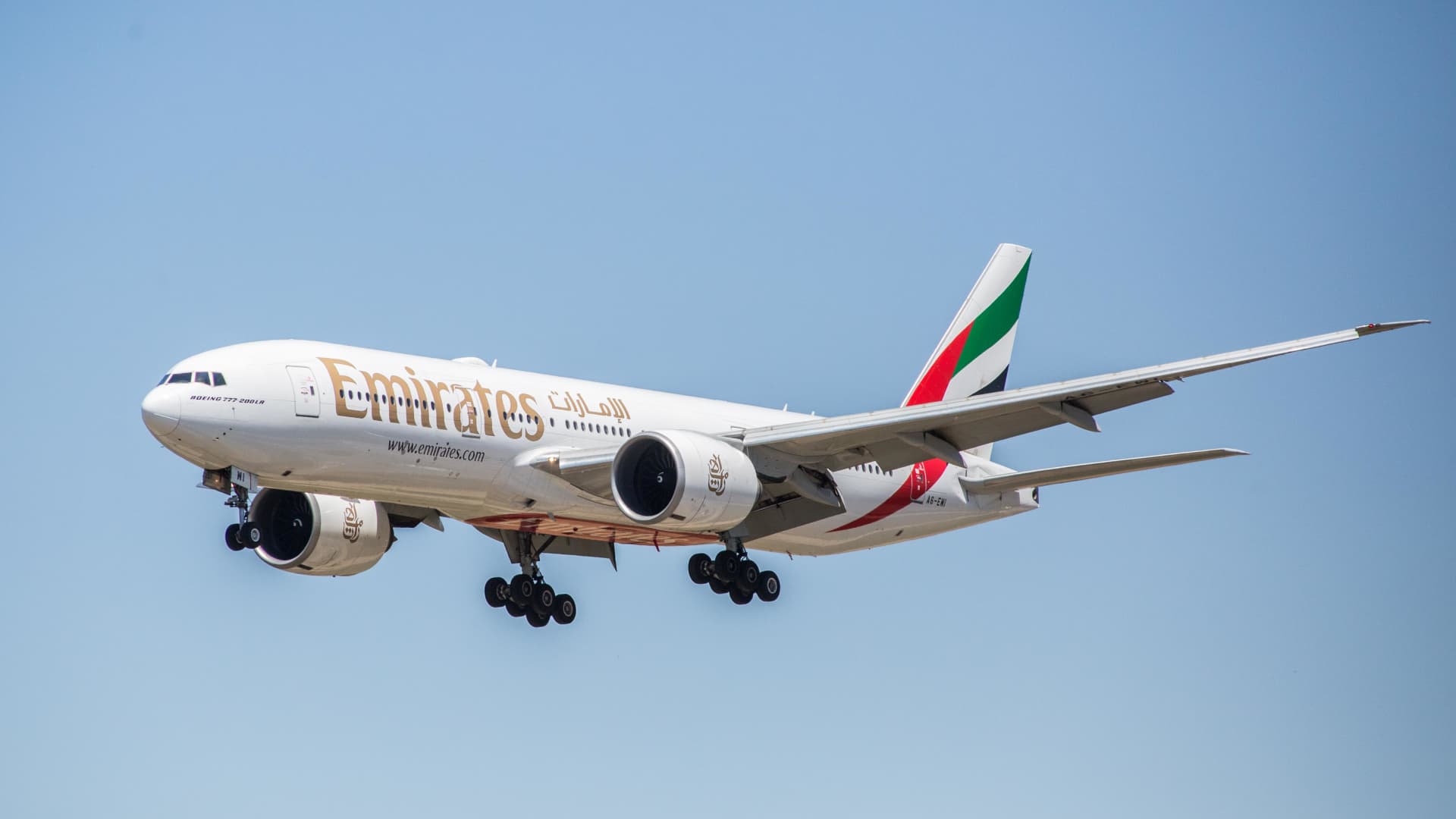Emirates has said it doesn’t see travel demand dissipating any time soon, even as the industry battles a string of challenges that have already sparked airport chaos ahead of the busy summer holiday season.
Tim Clark, president of the Dubai-based carrier and an airline veteran, said that he had “never seen anything” like the headwinds currently facing the industry. Yet, holidaymakers don’t seem to be deterred from seizing newly resumed travel opportunities.
“It’s unlikely that, irrespective of impediment — whether it be price, whether it be airport facilities — that demand is going to dissipate in the short-term,” Clark told CNBC’s Dan Murphy at the International Air Transport Association’s 78th Annual General Meeting in Doha, Qatar.
The airline industry has been hamstrung by a perfect storm of challenges, from labor shortages and supply disruptions to rising fuel prices, resulting in weeks of severe delays and cancellations across some of Europe and North America’s busiest airports.
On Saturday, more than 6,300 flights were delayed within, into or leaving the U.S., and 859 flights were canceled, according to the flight tracking platform FlightAware. Similarly, tens of thousands of flights have been disrupted across Europe in recent days, with 5,000 passengers at London’s Heathrow Airport expected to be hit by cancellations on Monday alone.
However, Clark said that passengers currently appear to be willing to pay the price — both financial and otherwise — for post-pandemic travel.
“The airline community has had to raise its prices to cover off and mitigate the fuel price increase, which has been astronomical. But the demand remains resilient, and we don’t see any slackening of that,” he said.
How long that may last is anyone’s guess, Clark said. Rising inflationary pressures and a worsening cost of living crisis, as well as wider sociopolitical concerns as a result of the war in Ukraine, all spell further headwinds for the industry, he added.
“Will demand taper or dilute over the next years as these major economic factors — which are so adverse to our business, and the global economy — remain in place? Or will those go down first? I don’t know which it’s going to be,” he said.
Clark urged greater industry collaboration and coordination to get through the summer travel peak, noting “we’ve just got to muddle through this and focus on getting the job done, rather than beating each other up.”
Still, he said he expects Emirates, hampered by two years of billion-dollar losses, including a $1.1 billion loss in 2021, expects to return to profitability in 2022.
“At the moment I’m pleased to say we’re making money,” Clark said. “Unless something else extraordinary happens, I think Emirates will be profitable in this financial year.”
